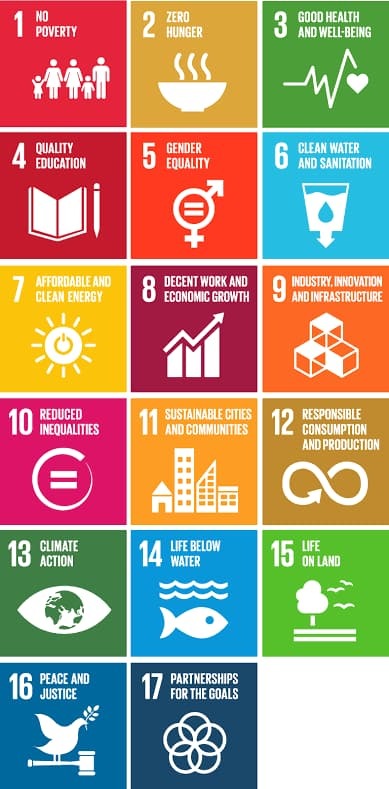Don't wanna be here? Send us removal request.
Text
Closer to 2030, Farther from Our Goals: Might We Running Out of Time?

There was a time when 2030 seemed distant—a marker on the horizon, a deadline for a better world. We set ambitious goals, believing that if we worked together, we could eradicate poverty, stop climate change, and build a fairer, more sustainable future.
But now, 2030 isn’t some faraway dream. It’s right around the corner. Less than five years from now, the world is expected to have delivered on the United Nations’ 17 Sustainable Development Goals (SDGs). Yet, as the clock ticks, we must ask: Are we anywhere close to the world we envisioned? Or are we running out of time?
The Unfinished Business of a Better World
When the SDGs were introduced in 2015, they offered a blueprint for tackling the world's greatest challenges—poverty, inequality, climate change, and more. Leaders spoke confidently, companies pledged their commitment, and citizens hoped for real change.
Fast forward to today, and reality is sobering. According to the United Nations 2023 SDG Progress Report, at the current pace, only 15% of the targets are on track to be met by 2030. Nearly half of the goals are moderately off-track, while over 30% have seen no progress—or have even regressed.
Consider these realities:
Poverty (Goal 1): Over 700 million people still live in extreme poverty. The COVID-19 pandemic reversed years of progress, pushing an additional 120 million people into poverty.
Climate Action (Goal 13): The world just experienced its hottest year on record, and carbon emissions continue to rise despite decades of warnings. The Paris Agreement target to limit warming to 1.5°C is slipping away.
Hunger (Goal 2): More than 735 million people go to bed hungry every night—an increase from previous years due to conflict, climate change, and economic instability.
Education (Goal 4): 244 million children and young people are out of school, with learning gaps widening across low-income nations.
Gender Equality (Goal 5): At this rate, it will take nearly 300 years to achieve full gender equality. Women and girls continue to face systemic barriers in education, employment, and leadership.
The truth is, the world isn’t just behind schedule—in many areas, we’re going backward.
Why Are We So Far Behind?
The failure to meet these goals isn’t because they were unrealistic. It’s because of a global crisis of commitment.
Conflicting Priorities: Governments often place short-term economic growth over sustainability. Many nations continue to subsidize fossil fuels while simultaneously pledging carbon neutrality.
Inequality in Responsibility: The richest 10% of the world’s population are responsible for over half of global carbon emissions, while the poorest suffer the worst effects of climate change. Developing nations struggle with debt while wealthier countries fall short on climate financing promises.
Wars and Global Instability: Conflicts in Ukraine, Gaza, Sudan, and other regions have diverted resources away from development efforts, causing food shortages, migration crises, and economic downturns.
Lack of Political Will: Policies that could accelerate change—such as taxing the ultra-rich, investing in green infrastructure, and enforcing corporate accountability—often stall due to political and corporate resistance.
The harsh reality is that progress isn’t just about having solutions—it’s about having the will to implement them.
The Last Mile: Is There Still Hope?
With less than six years left, is it too late to turn things around? The answer is no—but only if we treat this as an emergency.
History has shown that when humanity commits to change, it can achieve remarkable things. In just a few decades, we eradicated smallpox, rebuilt nations after world wars, and lifted millions out of poverty through innovation. We have the solutions. What we lack is the urgency and action to scale them.
What Must Happen Now?
If the world is to make up lost ground and move closer to achieving the SDGs, we need a radical shift in action, accountability, and collaboration.
1. Governments Must Lead with Courage
Implement bold climate policies, including phasing out fossil fuels, investing in renewables, and enforcing corporate accountability.
Make education, healthcare, and social protections non-negotiable rights, not privileges.
Enforce fair taxation to reduce inequality and fund development programs.
2. Businesses Must Rethink Profit
Stop greenwashing and commit to real sustainability by aligning business models with climate and social goals.
Invest in ethical supply chains and reduce environmental footprints.
Redirect resources to support local communities, fair wages, and circular economies.
3. People Must Demand More
Vote for leaders who prioritize climate action, equity, and sustainability.
Reduce personal carbon footprints, consume consciously, and support ethical brands.
Use voices on social media, in communities, and at workplaces to push for change.
We cannot afford to wait until 2029 to realize we have failed. The time for half-measures has passed.
2030: A Deadline or a Turning Point?
The year 2030 will arrive, whether we’re ready or not. The only question is whether it will mark the fulfillment of our greatest aspirations or the moment we recognize we have failed future generations.
Right now, the future is unwritten. We still have time to rewrite the ending. But only if we act like the world depends on it—because it does.
#enviromentalism#nature#health and wellness#sdg#environment#agenda 2030#vision 2030#sustainability#sustainableenergy#sustainableliving#forest#mountains#trees#landscape
1 note
·
View note